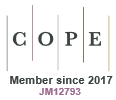Metal speciation and bioavailability: revisiting the ‘big questions’
Janet G. HeringEawag, Swiss Federal Institute of Aquatic Science and Technology, Überlandstrasse 133, CH-8600 Dübendorf, Switzerland. Email: janet.hering@eawag.ch

Janet Hering is the Director of the Swiss Federal Institute of Aquatic Science & Technology (Eawag) and Professor of Environmental Biogeochemistry at the Swiss Federal Institute of Technology, Zürich (ETHZ). From 1996 to 2006, she was a Professor of Environmental Science and Engineering at the California Institute of Technology (Caltech). Prior to 1996, she was an Assistant and later Associate Professor of Civil and Environmental Engineering at UCLA. Her research interests include the biogeochemical cycling of trace elements in natural waters and water treatment technologies for the removal of inorganic contaminants from potable water. |
Environmental Chemistry 6(4) 290-293 https://doi.org/10.1071/EN09021
Submitted: 14 February 2009 Accepted: 12 June 2009 Published: 25 August 2009
Environmental context. Four decades of research on metal speciation and bioavailability have failed to answer the ‘big questions’ of the ecological consequences of metal stress. Important, though still insufficient, insights have been gained from analytical approaches derived from inorganic environmental chemistry (targeting the quantification of free metal ion or ‘labile’ metal concentrations) and from organic environmental chemistry (focusing on the structure of ambient metal species). The ‘omics’ approach, not yet widely applied to this topic, offers the possibility of providing sufficient information to identify a quantitative signature of metal stress.
Acknowledgements
I would like to thank P. Nirel (Geneva Cantonal Department of Interior) and my Eawag colleagues R. Behra, R. Eggen, and L. Sigg for helpful discussions of this topic and three anonymous reviewers for their comments.
[1]
R. T. Barber ,
J. H. Ryther ,
Organic chelators: factors affecting primary production in the Cromwell Current.
J. Exp. Mar. Biol. Ecol. 1969
, 3, 191.
| Crossref | GoogleScholarGoogle Scholar |
CAS |

[2]
W. Sunda ,
R. R. L. Guillard ,
Relationship between cupric ion activity and toxicity of copper to phytoplankton.
J. Mar. Res. 1976
, 34, 511.
|
CAS |

[3]
J. Gavis ,
R. R. L. Guillard ,
B. L. Woodward ,
Cupric ion activity and the growth of phytoplankton clones isolated from different marine environments.
J. Mar. Res. 1981
, 39, 315.
|
CAS |

[4]
S. M. Hong ,
J. P. Candelone ,
C. C. Patterson ,
C. F. Boutron ,
Greenland ice evidence of hemispheric lead pollution two millennia ago by Greek and Roman civilizations.
Science 1994
, 265, 1841.
| Crossref | GoogleScholarGoogle Scholar |
CAS |
PubMed |

[5]
J. F. Wu ,
E. A. Boyle ,
Lead in the western North Atlantic Ocean: Completed response to leaded gasoline phaseout.
Geochim. Cosmochim. Acta 1997
, 61, 3279.
| Crossref | GoogleScholarGoogle Scholar |
CAS |

[6]
F. M. M. Morel ,
R. J. M. Hudson ,
N. M. Price ,
Limitation of productivity by trace-metals in the sea.
Limnol. Oceanogr. 1991
, 36, 1742.
|
CAS |

[7]
S. Silver ,
L. T. Phung ,
Bacterial heavy metal resistance: new surprises.
Annu. Rev. Microbiol. 1996
, 50, 753.
| Crossref | GoogleScholarGoogle Scholar |
CAS |
PubMed |

[8]
[9]
[10]
M. L. Tercier-Waeber ,
F. Confalonieri ,
G. Riccardi ,
A. Sina ,
S. Noel ,
J. Buffle ,
F. Graziottin ,
Multi physical–chemical profiler for real-time in situ monitoring of trace metal speciation and master variables: development, validation and field applications.
Mar. Chem. 2005
, 97, 216.
| Crossref | GoogleScholarGoogle Scholar |
CAS |

[11]
D. Baron ,
J. G. Hering ,
Analysis of metal-EDTA complexes by electrospray mass spectrometry.
J. Environ. Qual. 1998
, 27, 844.
|
CAS |

[12]
C. I. E. Wiramanaden ,
J. T. Cullen ,
A. R. S. Ross ,
K. J. Orians ,
Cyanobacterial copper-binding ligands isolated from artificial seawater cultures.
Mar. Chem. 2008
, 110, 28.
| Crossref | GoogleScholarGoogle Scholar |
CAS |

[13]
A. T. Sarpola ,
V. K. Hietapelto ,
J. E. Jalonen ,
J. Jokela ,
J. H. Ramo ,
Comparison of hydrolysis products of AlCl3·6H2O in different concentrations by electrospray ionization time of flight mass spectrometer (ESI TOF MS).
Int. J. Environ. Anal. Chem. 2006
, 86, 1007.
| Crossref | GoogleScholarGoogle Scholar |
CAS |

[14]
E. B. Kujawinski ,
Electrospray ionization Fourier transform ion cyclotron resonance mass spectrometry (ESI FT-ICR MS): characterization of complex environmental mixtures.
Environmental Forensics 2002
, 3, 207.
| Crossref | GoogleScholarGoogle Scholar |
CAS |

[15]
T. Owen ,
S. M. Webb ,
A. Butler ,
XAS study of a metal-induced phase transition by a microbial surfactant.
Langmuir 2008
, 24, 4999.
| Crossref | GoogleScholarGoogle Scholar |
CAS |
PubMed |

[16]
N. Hertkorn ,
E. M. Perdue ,
A. Kettrup ,
A potentiometric and 113Cd NMR study of cadmium complexation by natural organic matter at two different magnetic field strengths.
Anal. Chem. 2004
, 76, 6327.
| Crossref | GoogleScholarGoogle Scholar |
CAS |
PubMed |

[17]
R. B. Genter ,
R. M. Lehman ,
Metal toxicity inferred from algal population density, heterotrophic substrate use, and fatty acid profile in a small stream.
Environ. Toxicol. Chem. 2000
, 19, 869.
| Crossref | GoogleScholarGoogle Scholar |
CAS |

[18]
I. Rocchetta ,
M. Mazzuca ,
V. Conforti ,
L. Ruiz ,
V. Balzaretti ,
M. D. R. de Molina ,
Effect of chromium on the fatty acid composition of two strains of Euglena gracilis.
Environ. Pollut. 2006
, 141, 353.
| Crossref | GoogleScholarGoogle Scholar |
CAS |
PubMed |

[19]
T. L. Stoiber ,
M. M. Shafer ,
D. A. K. Perkins ,
J. D. C. Hemming ,
D. E. Armstrong ,
Analysis of glutathione endpoints for measuring copper stress in Chlamydomonas reinhardtii.
Environ. Toxicol. Chem. 2007
, 26, 1563.
| Crossref | GoogleScholarGoogle Scholar |
CAS |
PubMed |

[20]
W. G. Keltjens ,
M. L. van Beusichem ,
Phytochelatins as biomarkers for heavy metal toxicity in maize: single metal effects of copper and cadmium.
J. Plant Nutr. 1998
, 21, 635.
| Crossref | GoogleScholarGoogle Scholar |
CAS |

[21]
S. Dupont ,
K. Wilson ,
M. Obst ,
H. Skold ,
H. Nakano ,
M. C. Thorndyke ,
Marine ecological genomics: when genomics meets marine ecology.
Mar. Ecol. Prog. Ser. 2007
, 332, 257.
| Crossref | GoogleScholarGoogle Scholar |
CAS |

[22]
I. Poirier ,
N. Jean ,
J. C. Guary ,
M. Bertrand ,
Responses of the marine bacterium Pseudomonas fluorescens to an excess of heavy metals: physiological and biochemical aspects.
Sci. Total Environ. 2008
, 406, 76.
| Crossref | GoogleScholarGoogle Scholar |
CAS |
PubMed |

[23]
N. J. Bouskill ,
E. P. Barnhart ,
T. S. Galloway ,
R. D. Handy ,
T. E. Ford ,
Quantification of changing Pseudomonas aeruginosa sodA, htpX and mt gene abundance in response to trace metal toxicity: a potential in situ biomarker of environmental health.
FEMS Microbiol. Ecol. 2007
, 60, 276.
| Crossref | GoogleScholarGoogle Scholar |
CAS |
PubMed |

[24]
M. R. Thompson ,
N. C. VerBerkmoes ,
K. Chourey ,
M. Shah ,
D. K. Thompson ,
R. L. Hettich ,
Dosage-dependent proteome response of Shewanella oneidensis MR-1 to acute chromate challenge.
J. Proteome Res. 2007
, 6, 1745.
| Crossref | GoogleScholarGoogle Scholar |
CAS |
PubMed |

[25]
F. Pierron ,
M. Baudrimont ,
P. Gonzalez ,
J. P. Bourdineaud ,
P. Elie ,
J. C. Massabuau ,
Common pattern of gene expression in response to hypoxia or cadmium in the gills of the European glass eel (Anguilla anguilla).
Environ. Sci. Technol. 2007
, 41, 3005.
| Crossref | GoogleScholarGoogle Scholar |
CAS |
PubMed |

[26]
H. C. Poynton ,
J. R. Varshavsky ,
B. Chang ,
G. Cavigiolio ,
S. Chan ,
P. S. Holman ,
A. V. Loguinov ,
D. J. Bauer ,
et al. Daphnia magna ecotoxicogenomics provides mechanistic insights into metal toxicity.
Environ. Sci. Technol. 2007
, 41, 1044.
| Crossref | GoogleScholarGoogle Scholar |
CAS |
PubMed |

[27]
A. Soetaert ,
T. Vandenbrouck ,
K. van der Ven ,
M. Maras ,
P. van Remortel ,
R. Blust ,
W. M. de Coen ,
Molecular responses during cadmium-induced stress in Daphnia magna: integration of differential gene expression with higher-level effects.
Aquat. Toxicol. 2007
, 83, 212.
| Crossref | GoogleScholarGoogle Scholar |
CAS |
PubMed |

[28]
B. Pina ,
M. Casado ,
L. Quiros ,
Analysis of gene expression as a new tool in ecotoxicology and environmental monitoring.
TRAC – Trend. Anal. Chem. 2007
, 26, 1145.
| Crossref | GoogleScholarGoogle Scholar |
CAS |

[29]
[30]
J. T. Phinney ,
K. W. Bruland ,
Uptake of lipophilic organic Cu, Cd, and Pb complexes in the coastal diatom Thalassiosira weissflogii.
Environ. Sci. Technol. 1994
, 28, 1781.
| Crossref | GoogleScholarGoogle Scholar |
CAS |

[31]
J. G. Rueter ,
F. M. M. Morel ,
The interaction between zinc-deficiency and copper toxicity as it affects the silicic-acid uptake mechanisms in Thalassiosira pseudonana.
Limnol. Oceanogr. 1981
, 26, 67.
|
CAS |

[32]
D. M. Anderson ,
F. M. M. Morel ,
Copper sensitivity of Gonyaulax tamarensis.
Limnol. Oceanogr. 1978
, 23, 283.
|
CAS |



